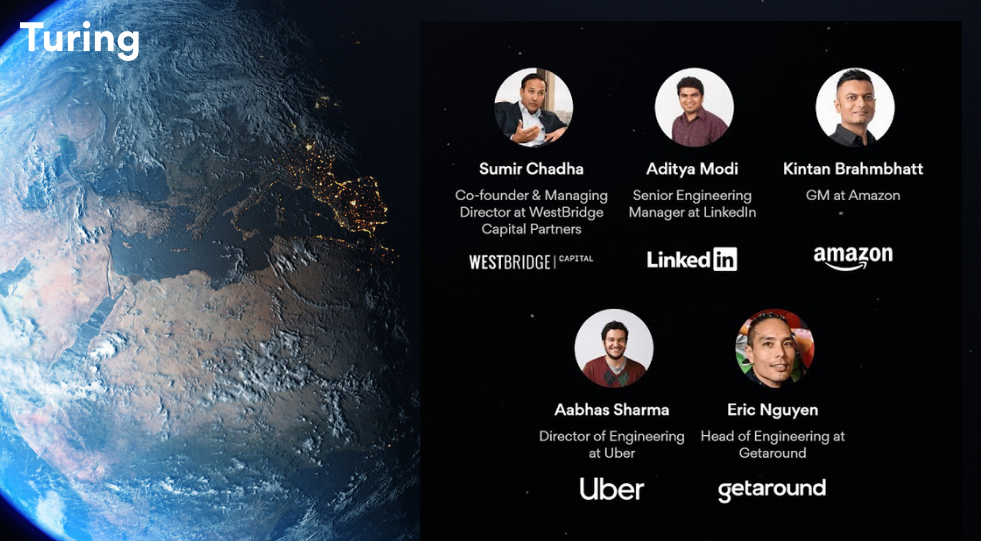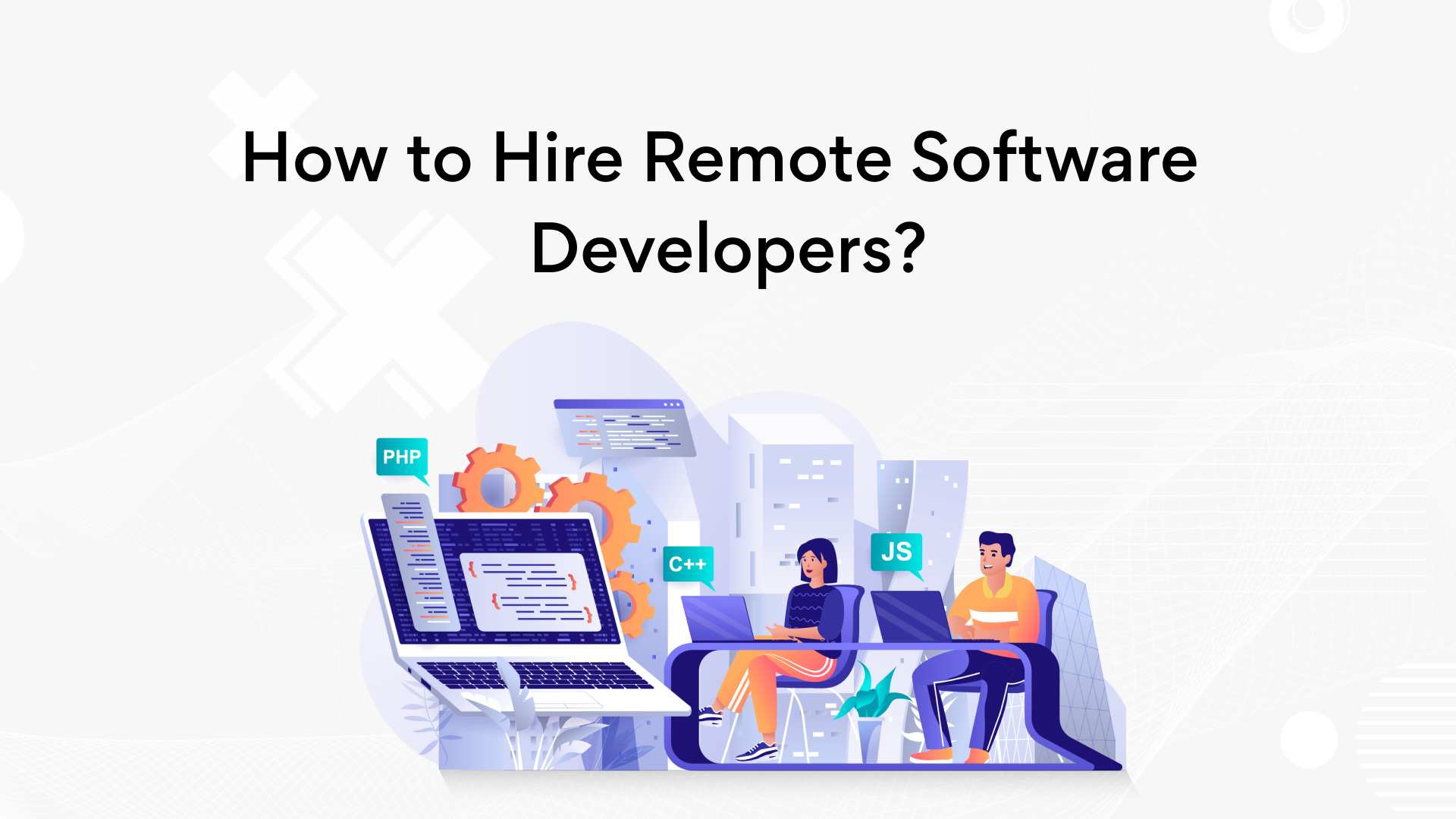What Does Remote Look Like for the Enterprise, Post-Pandemic? Leaders from Amazon, LinkedIn, and Postmates Share Their Expertise
Helping employees avoid meeting fatigue, the importance of onboarding, and the need for diversity were among the recommendations shared by engineering leaders from Amazon, LinkedIn, and Postmates/Uber at Turing’s Boundaryless: #ScalingPostPandemic conference, which took place on May 13, 2021.
“What Does Remote Look Like for the Enterprise Post-Pandemic?” was the second session of the thought-provoking conference that Turing sponsors and holds quarterly to help engineering leaders from fast-scaling startups and enterprises meet the challenges of managing remote software development teams.
Key points discussed during the enterprise session:
Avoid “meeting fatigue”
Sumir Chadha, Co-Founder & Managing Director, WestBridge Capital Partners, began the session by asking his fellow panelists to share lessons learned from going remote. Aditya Modi, Senior Engineering Manager, LinkedIn, discussed a typical problem remote teams face: “meeting fatigue” caused by overcommunication.
He recommended managers be mindful of the number of meetings they schedule. He suggested consolidating meetings and inviting only those team members who would find the discussion relevant. He also cautioned against back-to-back meetings and instead recommended having frequent breaks between them.
Agreeing, Aabhas Sharma, Director of Engineering, Postmates/Uber, revealed that his team has a similar approach: it sets meeting hours that work for all time zones, allowing employees to have flexible schedules outside of those hours to avoid fatigue.
Kintan Brahmbhatt, GM, Amazon, said his team follows a practice of “no-meeting days or times,” wherein teams avoid get-togethers altogether on particular days of the week or month.
Self-onboarding is a critical investment
Sumir sought the panel’s advice on managing remote teams for the first time. In response, the experts stressed the importance of smooth onboarding for newly remote teams.
Aabhas introduced the concept of self-onboarding. He pointed out that synchronous onboarding sessions can be difficult for teammates located in different time zones. Instead, managers should equip new hires with the resources to onboard themselves, he added. “Self-onboarding resources were a critical investment for the Postmates team,” he mentioned.
Kintan, too, said he preferred thorough document-sharing to one-on-one onboarding meetings and shadowing. “Increased documentation makes it easier for new employees to understand the rhythm of the organization,” he explained. “The right support and mentorship structure can also be crucial,” he added.
Diversity is a crucial feature of remote teams
Sumir asked leaders about the importance of diversity in remote teams. Aditya said, “Remote work helps companies access a bigger pool of talent, which organically creates diversity.” This has worked well in LinkedIn’s interest, he added.
Kintan commented that remote work is inclusive of different races and ethnicities and different personality types. “Hiring remotely instead of locally has helped bring forth newer perspectives and diversity of thought,” he explained.
Aabhas called remote work a significant “bias remover” during the hiring process. “Biases that would apply during in-person interviews disappear in remote hiring,” he said. In-person interviews draw attention to dressing styles, features, and overall appearance, while remote hiring doesn’t, he added.
Eric Nguyen, Head of Engineering, Getaround, revealed that affinity groups—groups of people from similar backgrounds and their allies—have become an important social space for employees at his company. Himself a member of affinity groups like Asian Americans and Pacific Islanders, Eric added that such groups have helped support many meaningful conversations.
The group of leaders also discussed everything from hiring strategies for the hybrid world to the importance of proactive communication. Watch the entire conversation here.
Head here to watch a recording of the Boundaryless: #ScalingPostPandemic Conference.
Boundaryless: #ScalingPostPandemic is sponsored by Turing.com. With Turing, hiring and managing exceptionally talented, pre-vetted remote software developers is automated, speedy, and affordable. Companies have access to a global talent pool of top 1% of 700K+ Turing developers across 140+ countries. 200+ companies, including those backed by Google Ventures, Andreessen, Founders Fund, Kleiner, and Bloomberg, have hired Turing remote software engineers.
Tell us the skills you need and we'll find the best developer for you in days, not weeks.












